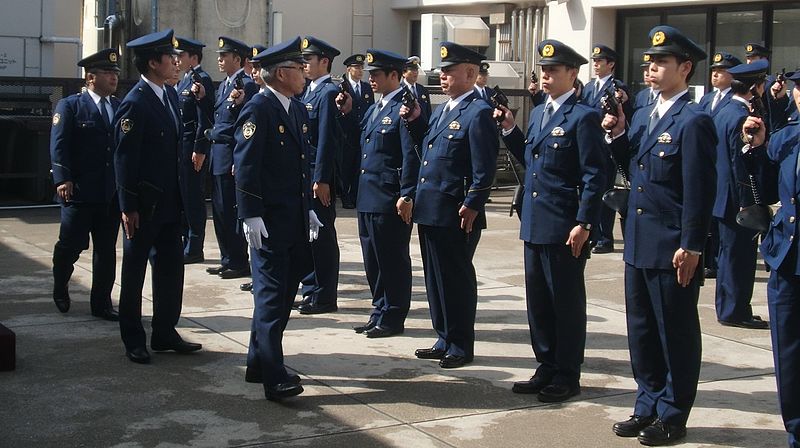Minister
of Foreign Affairs
|
|
In
office
15 January 1976 – 7 January 1979 |
|
Prime Minister
|
Khieu Samphan (acting)
Nuon Chea Pol Pot |
Succeeded by
|
Hun Sen
|
Personal
details
|
|
Born
|
24 October 1925
Châu Thành District, Trà Vinh Province |
Died
|
14 March 2013 (aged 87)
Phnom Penh, Cambodia |
Political party
|
Communist Party of Kampuchea
|
Spouse(s)
|
Ieng Thirith
|
Ieng Sary
(Khmer: អៀង សារី; 24 October 1925 – 14 March 2013) was
a co-founder of the Khmer Rouge. He was the Deputy Prime Minister and Foreign
Minister of Democratic Kampuchea from 1976 to 1979 and held several senior
positions in the Khmer Rouge until his defection to the government in 1996.
Early
years
Ieng
Sary was born in Nhan Hoa village, which is located in the subdistrict of Luong
Hoa (also known as Loeung Va in Khmer), Châu Thành District, Trà Vinh Province,
southern Vietnam in 1925. His father, Kim Riem was a Khmer Krom while his
mother Tran Thi Loi, was a Chinese immigrant who moved to Vietnam with her
parents when she was a little girl. Sary changed his name from the Vietnamese Kim Trang when he joined the Khmer
Rouge. He was the brother-in-law by marriage of the Khmer Rouge leader Pol Pot
(real name: Saloth Sar). Sary and Saloth Sar studied at Phnom Penh's Lycée
Sisowath where their future wives, the sisters Khieu Thirith and Khieu Ponnary
also studied. Before leaving Cambodia to study in Paris, Sary was engaged to
Khieu Thirith.
Sary
and Saloth Sar also studied together in Paris. Whilst there, Sary rented an
apartment in the Latin Quarter, a hotbed of student radicalism. He and Saloth
Sar met with French communist intellectuals, and formed their own cell of
Cambodian communists.
Sary
and Khieu Thirith married in the town hall of Paris' 15th arrondissement in the
winter of 1951. Thirith took her husband's name, becoming Ieng Thirith.
Mid-life
After
returning to Cambodia, he was inducted into the Central Committee of the Workers
Party of Kampuchea in September 1960.
After
the fall of the Khmer Republic on 17 April 1975, Sary made personal appeals to
expatriates to help rebuild Cambodia. However when they returned to Cambodia,
they were arrested on arrival, and thrown into brutal detention centers. He
took the nickname "Brother number 3" and, as head of diplomacy, he
will be the only dignitary not to cultivate his secret identity.
He
welcomed foreign visitors and was also responsible for purges and arrests in
the government's ministries. At the end of 1977, before the United Nations, he
rejected accusations from Cambodian refugees who wanted to open a discussion
with the Khmer Rouge government. Together with Pol Pot, Ieng Sary was sentenced
to death in-absentia by the People's Revolutionary
Tribunal after the Khmer Rouge were overthrown in 1979.
King
Norodom Sihanouk officially pardoned Ieng Sary in 1996. He was the founder of
the Democratic National Union Movement, a split from the Cambodian National
Unity Party.
 |
|
31
Aug 2011:Nuon Chea and Ieng Sary during the third day of Trial Chamber's
preliminary hearing on fitness to stand trial.
|
Arrest
and trial
Ieng
Sary, reportedly living in "an opulent Phnom Penh villa surrounded by
security guards and barbed wire" was arrested on 12 November 2007 in Phnom
Penh on an arrest warrant from the Cambodia Tribunal for war crimes and crimes
against humanity. His wife, Ieng Thirith, was also arrested for crimes against
humanity.
On
16 December 2009, the tribunal officially charged him with genocide for his
involvement with the subjugation and murder of Vietnamese and Muslim minorities
in Cambodia.
Death
Sary
died in Phnom Penh on 14 March 2013 at the age of 87, before the case against
him could be brought to a verdict. He had heart problems for years as well as
other ailments. He was taken from his holding cell at the special tribunal to a
hospital on 4 March 2013 for what his lawyers said were gastrointestinal
problems. Sary's body was transported to his home in Banteay Meanchey province.
The body lay for seven days before being cremated. At the time of his death,
Sary was on trial for his involvement in the Khmer Rouge. Elisabeth Simonneau
Fort, a lawyer for the victims, said "For the victims, this death narrows
the scope of the trial and limits their search for truth and justice".




No comments:
Post a Comment